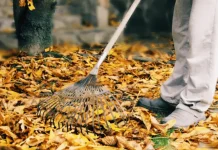Chamomile

No wonder chamomile made our list of the best herbs for baths. Its mild, fruity scent relieves stress, as do the other ingredients. It’s a great choice for babies, and it’s suitable for all ages.
Chamomile is a medicinal herb that can be used in the bath by itself. It is great for cranky babies to soothe them before bedtime. It is safe enough for the youngest bathers, and its scent also helps soothe tired moms.
Did you know. Since Roman times, chamomile has been one of the most common folk remedies used to treat everything from rheumatism to parasites. However, it can cause allergies in people who are sensitive to ragweed.
Basil

Basil is the herb of choice if you want to create a stimulating and energizing bath. The pleasant aroma awakens the senses and refreshes the mood.
Did you know. Basil has a long history of use at funerals, allowing the deceased to successfully pass through heaven or into the afterlife. To this day, some sects of the Catholic Church use basil to make holy water.
Eucalyptus

Eucalyptus has a familiar scent to us all. If you have a cold or allergy, you can use it as a mild irritant or medicine to get rid of hair loss.
Did you know. Eucalyptus leaves contain chemicals that help control blood sugar levels.
Fennel

Another wonderful ingredient in a stimulating bath mixture, fennel has a lovely sweet aroma reminiscent of licorice. It is pleasant for young and old alike.
Did you know. Taking fennel internally can help with a variety of digestive disorders. It is an ingredient in absinthe, a well-known alcoholic beverage.
Lavender

Of course, lavender is also on the list of the best herbs for baths. Who doesn’t love a soothing bath in lavender-scented water? Lavender is suitable for all types of baths and is a great complementary scent for most herbal blends.
Did you know. Lavender has antiseptic and anti-inflammatory properties and can be used as a natural mosquito repellent.
Melissa

Lemon melissa is a great herb for baths. Although considered relaxing when used, lemon balm is considered a stimulating addition when taken in a bath. Add it to your bath mixture and see if it refreshes you.
Did you know. A compound in Melissa (Rosmarinus acid) can reduce anxiety and stress by increasing the availability of (gamma-aminobutyric acid) (a neurotransmitter) in the brain.
Rosemary

Rosemary is a wonderful herb for baths. Its piney aroma will help when you are not feeling well or have a cold. A rosemary bath will help you get rid of the aches and pains after a day of gardening.
Did you know. Rosemary was considered sacred to the ancient Egyptians, Romans and Greeks. To this day, it is used as a symbol of remembrance at funerals and other ceremonies.
Sage

Sage is another herb that has a stimulating effect when added to the bath mixture. It may not be to everyone’s taste, so it is recommended that you test it before adding it to your bath mixture.
Did you know. In ancient times, sage was believed to be able to ward off evil, which made it one of the main remedies in the Middle Ages.
Calendula

Calendula is a must in any bath mixture. It is used as a soothing and healing herb to treat dry skin or to resorb healing wounds. Immerse yourself in a warm bath with calendula when you’re trying to soothe areas that aren’t feeling well!
For children, calendula can ease the discomfort of chicken pox, eczema symptoms, mosquito bites or persistent diaper rash.
Did you know. Calendula flowers were used during the Civil War to relieve wounds and heal.
Yarrow

Yarrow is an unusual addition to this list. Home herbalists often overlook it, and you may even cut it down along with the weeds if you find it growing in your yard. However, yarrow is a medicinal plant with great healing properties. Use it in baths to soothe irritated skin and lotions on healing wounds.
Yarrow has a pleasant smell, but most people consider it “a little different.” Use your light hand by adding yarrow to your herbal bath mix.
Did you know. Yarrow contains chemicals that some experts say fight stomach cramps and other digestive problems.





